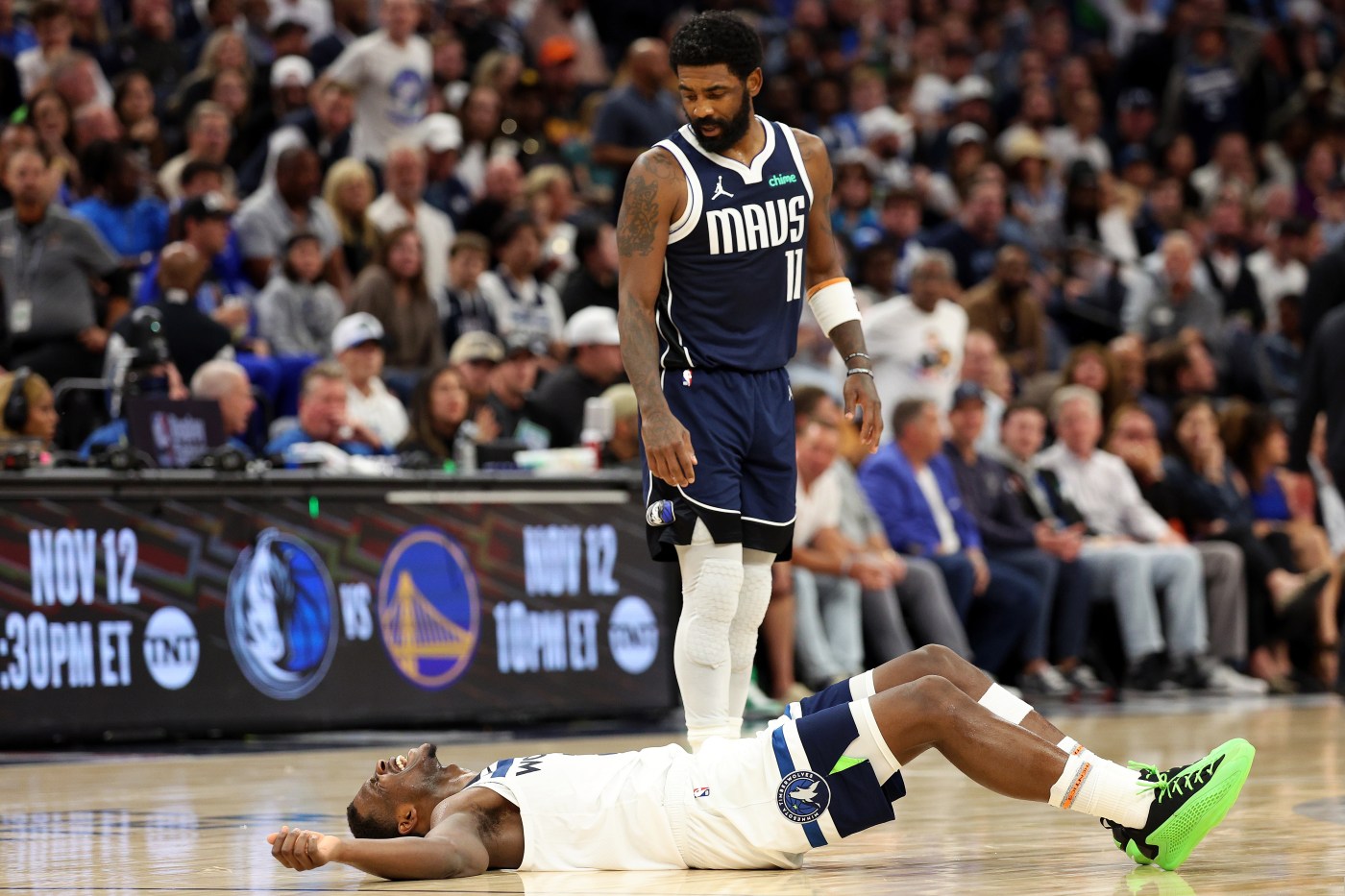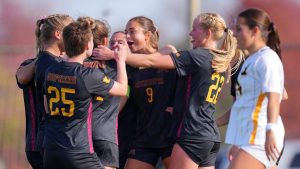
Loss to Mavericks shows Anthony Edwards needs to do much more than score for Wolves
It was notable that Anthony Edwards took such accountability after Minnesota fell 120-114 to Dallas at home Tuesday in a highly anticipated Western Conference Finals rematch played under the bright lights of a national telecast.
Edwards was electric early, pouring in 24 first-quarter points. He finished with 37. A quick scan of the box score would suggest the 23-year-old guard was not to blame for the defeat.
But the team-centered reasons for the losses were evident. Minnesota committed 20 turnovers that led to 25 points for the Mavericks. Dallas also hammered the offensive glass en route to 23 second-chance points.
Those are glaring issues that can get a team beat on any night.
And Edwards seemed to recognize he was at the center of them.
The guard said he felt Minnesota’s defense was actually decent in the loss but noted the second-chance points hurt Minnesota.
“Which was a lot on me,” Edwards said. “I’ve got to be better.”
Indeed, a quick flip through the tape showed multiple possessions in which Mavericks forward P.J. Washington grabbed offensive rebounds that led to second-chance points while Edwards, the man tasked with boxing out Washington, was standing in place, simply staring up at the rim.
Edwards suggested he “probably plays a part” in the struggles with the transition defense, as well. He wasn’t alone in that department, but he certainly committed his share of gaffes.
“Talking to the refs, falling on the ground and (stuff),” Edwards said. “Just immature stuff, probably. That’s probably why we don’t get back in transition. Not guarding the rim.”
Even on plays when he was back on defense, Edwards wouldn’t pick up the most immediate threat to the rim as Gobert — who’s such a big part of Minnesota’s offensive rebounding — was sprinting down the court trying to catch his man, who at times started the possession with a multi-step lead.
“We got to help him out,” Wolves coach Chris Finch said. “Because when we get back and get him in the right position, we do pretty good.”
Gobert said miscommunication has been an issue in that department. Edwards suggested as much, as well.
“A couple of possessions early in the game, me and Mike (Conley) was back early and we thinking I’m telling Rudy to get back, but it’s on me to guard the rim because Rudy can take the opposite corner,” Edwards said. “Immature game plan mistakes.”
A part of the lack of execution seems to stem from a lack of urgency at times. The same is true on the defensive glass. When Edwards — who has been the Timberwolves’ barometer in every way for a couple of years now — puts his full focus and force into what matters, he lifts Minnesota to a title-winner tier.
But when the team’s best player begins to let the little things slip, the proper tone is not set. Those 37 points — or the 30 he’s averaging per game this season — aren’t always as necessary as a good box-out or a denial of a back-door cutter.
“I mean those lapses have to go away,” Finch said. “He does have to rest more on the offensive end instead of resting him defensively. Certainly, there are enough other guys out there that can do something with the ball.”
Gobert said Minnesota endured a film session that exposed many of the less-than-stellar habits it exhibited against Dallas. Traditionally, when Finch and the coaching staff point out a weakness, it gets corrected in short order.
But it is extra encouraging for Edwards’ development that he was so cognizant of his shortcomings in the immediate aftermath of the defeat. That’s a sign of growth and opens the door for such lapses to be corrected in real time, if not eliminated all together.
“I feel like we’ll be better at that as the season goes on,” Edwards said of the shortfalls.
It starts with him, and he seems to recognize as much.


